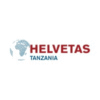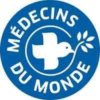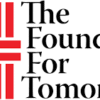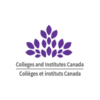CONSULTANCY FOR CONDUCTING ENDLINE SURVEY FOR IC4N PROJECT
RFQ/Tender Information and Attachments
For comprehensive information regarding this RFQ/tender, we invite you to download the attachments provided below. These documents contain all the necessary details, including specifications, requirements, and submission guidelines. Please review them carefully to ensure you have all the pertinent information needed to participate.
DOWNLOAD THE FULL TENDER NOTICE HERE
=====
Terms of Reference for the Inclusive Cities for Nutrition (IC4N) Project Endline Survey
Project Overview
Project Name: Inclusive Cities for Nutrition (IC4N)
Location/Country: City of Mbeya, Tanzania
Client: HELVETAS Swiss Intercooperation Tanzania
Address:
2nd floor, NBC Building
Nyerere Road
P.O. Box 2978
Dodoma
Website: www.helvetas.org
Contact Emails:
Consultancy for Conducting Endline Survey for IC4N Project
1. Background
The cities of Mbeya, Tanzania, and Zurich, Switzerland, in collaboration with HELVETAS Swiss Intercooperation, have implemented the Inclusive Cities for Nutrition (IC4N) project, an urban food systems initiative under the city-to-city cooperation (C2CC) between the City of Zurich’s Department for Urban Development and the City of Mbeya. The project aims to improve the nutrition status and food security of Mbeya’s citizens through strengthened urban food systems. This requires robust food governance, a conducive food environment, and positive consumer behavior for healthy and sustainable diets. The initiative also contributes to international knowledge exchange on sustainable urban food systems and aligns with Tanzania’s National Multisectoral Nutrition Action Plan (NMNAP II).
The project, now in its third and final year, focuses on four key outcomes:
- Outcome 1: Mbeya City Council (MCC) facilitates an inclusive, participatory food systems transformation through enabling policies and a conducive food governance environment.
- Outcome 2: Vulnerable urban consumers in Mbeya are sensitized to demand healthy and diverse diets and change their consumption behavior and practices related to food and nutrition.
- Outcome 3: Vulnerable urban consumers have improved access to affordable, nutritious, safe, and convenient food items.
- Outcome 4: Data-based evidence and documented good practices contribute to knowledge exchange, joint learning, and political decision-making about inclusive, resilient, and sustainable urban food systems.
To assess the project’s impact, an endline survey is planned for August and September 2025. A qualified consultant will be hired to conduct this survey efficiently and effectively.
2. Objectives of the Consultancy
The primary purpose of the endline survey is to:
- Measure the achievements of the project objectives and outcomes by collecting data on key indicators, comparing them against baseline values and project targets as defined in the project’s Logical Framework (Logframe).
- Assess the extent of changes (positive or negative) in the knowledge, attitudes, practices, and conditions of target beneficiaries related to food security and nutrition in Mbeya City.
- Generate reliable quantitative and qualitative data to feed into the overall end-of-project evaluation and inform future programming by Helvetas, Mbeya City Council, the City of Zurich, and other relevant stakeholders.
- Identify key learnings and contributing factors to observed changes.
3. Specific Objectives
The endline survey will focus on the following areas:
- Household Food Security: Assess changes in household dietary diversity and levels of food insecurity compared to baseline data.
- Food Systems Governance: Evaluate improvements in governance structures and the active participation of key food system stakeholders.
- Nutrition Knowledge & Behavior: Assess levels of nutrition awareness and actual healthy eating consumption behaviors within the targeted wards.
- Intrahousehold Gender Dynamics: Measure gender-specific outcomes, particularly how they relate to food distribution and consumption behaviors within households.
- Mbeya City Market Analysis: Capture and analyze market dynamics and food availability trends specifically within Mbeya City.
- Strategic Recommendations: Provide evidence-based recommendations to inform the planning and design of Phase II.
The survey will also address key evaluation questions based on the following criteria, with a strong emphasis on gender equality and social inclusion:
3.1 Relevance
- To what extent were the project’s objectives and design relevant to the needs and priorities of the target beneficiaries (e.g., vulnerable households, smallholder farmers, market vendors) and the Mbeya City Council?
- How well did the project align with national and local policies, strategies, and development priorities related to food security, nutrition, and urban development in Tanzania?
- Was the “food system approach” an appropriate and relevant strategy to address malnutrition in Mbeya City?
3.2 Coherence
- How well did the project coordinate and integrate its activities with other initiatives, programs, and policies by the Mbeya City Council, other NGOs, and development partners in Mbeya City related to food, nutrition, and urban development?
3.3 Effectiveness
- To what extent have the project’s stated objectives and expected outcomes been achieved? (e.g., increased awareness, improved dietary practices, enhanced market hygiene, strengthened municipal capacity).
- What were the major factors (both internal and external) that contributed to or hindered the achievement of project results?
- To what extent did the project address cross-cutting issues such as gender equality, social inclusion, and climate change adaptation within its interventions? What were the differential impacts on various groups?
3.4 Efficiency
- Were the project activities implemented in a timely manner and within the allocated budget? Were resources (financial, human, material) utilized efficiently?
- Could the same results have been achieved with fewer resources or different approaches?
- Was the project management and coordination structure efficient in facilitating implementation and achieving results?
3.5 Impact
- What significant positive and negative, intended and unintended, changes (short-term and potential long-term) have occurred in the lives of the beneficiaries and the broader Mbeya City food system as a direct or indirect result of the project?
- How has the project contributed to improved nutritional status, food security, and resilience among target groups?
- To what extent has the project influenced policy, planning, or institutional practices within the Mbeya City Council regarding food systems and nutrition?
3.6 Sustainability
- What is the likelihood that the benefits and positive changes brought about by the project will be sustained after the project ends?
- To what extent have local capacities (e.g., Mbeya City Council staff, community groups, market associations) been strengthened to continue and replicate project activities?
- Are there clear ownership and commitment from MCC and communities to continue the interventions?
4. Scope of Work
The consultant(s) will be responsible for conducting a comprehensive endline survey of the IC4N project in Mbeya City, including:
- Thorough review of the project’s Logical Framework, baseline survey report, project proposal, and relevant monitoring data to understand indicators, targets, and data collection methodologies previously used.
- Develop or refine the detailed survey methodology, including a sampling strategy (building on the baseline survey methodology where appropriate to ensure comparability).
- Develop/adapt and finalize all data collection tools (questionnaires, observation checklists) in close consultation with Helvetas, ensuring alignment with baseline tools and project indicators. Tools must be translated into Swahili and back-translated for quality assurance.
- Recruit, train, and supervise a team of qualified enumerators for data collection, ensuring they fully understand the tools and ethical protocols.
- Oversee and manage fieldwork in Mbeya City, ensuring data quality, accuracy, and adherence to ethical guidelines. This includes:
- Pre-testing of tools.
- Daily supervision and quality control of data collectors.
- Ensuring proper informed consent procedures.
- Ensure data management and conduct data analysis.
- Prepare and present preliminary results soon after fieldwork.
- Prepare and compile a comprehensive endline survey report.
- Present key findings to Helvetas and relevant stakeholders.
5. Methodology
A mixed-methods approach is recommended, including:
- Clearly articulate the sample size calculation, including assumptions, and describe how the sampling will ensure comparability with the baseline data if a similar methodology is used.
- Qualitative methods such as focus group discussions (FGDs), key informant interviews (KIIs), and document/system review.
- Market surveys to assess changes in food availability, pricing, and accessibility.
- Use of digital data collection tools (e.g., Kobo Toolbox).
- Adherence to ethical standards, including informed consent.
6. Deliverables
The consultant will deliver the following:
- Inception Report (within 5 working days of contract signing): Details the consultant’s understanding of the ToR, refined methodology, detailed work plan, finalized data collection tools (in English and Swahili), sampling framework, data management plan, and ethical considerations. Must be approved by Helvetas before fieldwork.
- Training Plan and Materials for Enumerators: For approval by Helvetas prior to training commencement.
- Cleaned and Coded Raw Data: Both quantitative and qualitative data in an organized and clearly labeled format.
- Preliminary Findings Presentation (after data collection, prior to draft report): A presentation of initial findings, conclusions, and emerging recommendations to Helvetas for feedback and validation.
- Draft Evaluation Report (within 14 days of preliminary findings presentation): A comprehensive report addressing all evaluation and survey questions, including an executive summary, methodology, findings, conclusions, lessons learned, and actionable recommendations.
- Final Evaluation Report (within 7 days of receiving feedback on the draft report): A high-quality, revised report incorporating feedback from Helvetas and stakeholders. The report should be clear, concise, well-structured, and evidence-based.
7. Qualifications of the Consultant
The consultant must possess:
- Education: Master’s degree or higher in a relevant field such as Development Studies, Public Health, Nutrition, Social Sciences, Statistics, Agriculture, Food Systems, or related fields.
- Experience:
- Minimum of 7 years of demonstrable experience in conducting evaluations of development projects, particularly end-of-project evaluations.
- Proven experience in evaluating projects related to food security, nutrition, urban development, local governance, and/or public health.
- Demonstrated experience in applying mixed-methods evaluation approaches (quantitative and qualitative data collection and analysis).
- Experience working in Tanzania and familiarity with the local context, including Mbeya City, is highly desirable.
- Experience with Helvetas’s or similar international development organizations’ evaluation standards is an asset.
- Technical Skills:
- Strong analytical, research, and report writing skills.
- Proficiency in data analysis software.
- Fluency in spoken Swahili and written English is essential.
8. Roles and Responsibilities
The Consultant will:
- Report directly to the Helvetas project manager.
- Provide regular communication and progress updates throughout the assignment.
Helvetas will:
- Provide all necessary project documents.
- Facilitate access to project staff, partners, and beneficiaries.
- Review and provide timely feedback on deliverables.
- Make payments as per the agreed contract.
- Support logistics for field visits (e.g., introduction letters, initial contacts).
The Consultant is responsible for their own travel and accommodation arrangements.
Mbeya City Council will:
- Be a key stakeholder and actively involved in the survey, particularly in facilitating access to information and local communities.
9. Timeframe for the Assignment
The study is expected to be conducted within a maximum of 31 working days between August and September 2025. The consultant should submit a detailed financial proposal outlining professional fees and all anticipated reimbursable expenses (e.g., travel, accommodation, local transport, data collection costs, translation services if needed). The budget should be inclusive of all taxes.
Task Breakdown:
- Review of Project Documents and Designing of Evaluation Tools:
- Requirements: Project documents, Baseline Report, data collection tools
- Duration: 7 days
- Responsible: Consultant
- Questionnaires Programming:
- Requirements: Kobo Collect program
- Duration: 2 days
- Responsible: Consultant and IC4N team
- Enumerator Recruitment:
- Duration: Not specified
- Responsible: Consultant
- Enumerator Training:
- Requirements: Stationaries, refreshments
- Duration: 2 days
- Responsible: Consultant
- Pretesting and Finalizing the Questionnaire:
- Requirements: Transport
- Duration: 2 days
- Responsible: Consultant, IC4N team, MCC
- Data Collection and Exit Meeting:
- Requirements: Transport
- Duration: 10 days
- Responsible: Consultant, IC4N team, MCC
- Data Cleaning, Analysis, and Report Writing:
- Duration: 8 days
- Responsible: Consultant
- Total Working Days: 31
10. Reference Documents
- Project Document
- Baseline Survey Report
- Consumer Behaviour Analysis Study Report
- Social Behaviour Communication Change (SBCC) Campaign Report
- Mid-Term Review Report
- Project Annual Reports
Note: The consultant must comply with all local policies, guidelines, and regulations set by the Mbeya City Council and coordinate with local authorities for necessary permits.
11. Proposal Submission
Interested consultants and/or firms must submit a comprehensive proposal, including a cover letter, CV of the proposed evaluator(s), and budget. Submissions can be made via ordinary mail or email to the address provided above, no later than July 31, 2025.
Application Requirements:
- Technical Proposal (max 10 pages):
- Understanding of the ToR.
- Proposed detailed methodology, including evaluation design, sampling strategy, data collection tools, and data analysis plan.
- Detailed work plan with clear timelines for each activity.
- Team composition (if applicable), including roles and responsibilities.
- Demonstrated experience in similar assignments (provide links to or attach relevant previous evaluation reports).
- Financial Proposal:
- Detailed budget breakdown (professional fees, reimbursable expenses).
- CV(s): Detailed CV of the consultant highlighting relevant experience and qualifications.
- References: Contact details of at least three referees from previous evaluation assignments.
Email Subject: CONSULTANCY APPLICATION
Submission Deadline: July 31, 2025
12. Evaluation Criteria for Proposals
Proposals will be evaluated based on:
- Technical Merit (70%):
- Understanding of the ToR and project context (15%)
- Quality and appropriateness of the proposed methodology (25%)
- Realism and feasibility of the work plan (10%)
- Qualifications and experience of the consultant(s)/team (20%)
- Financial Proposal (30%):
- Competitiveness and value for money





